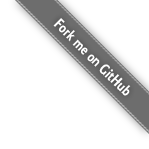Mounting Attached Devices
This page is dedicated to the development of systems to mount attached devices. The hope is that this page will result in a variety of tools which will be able to assist pre and post action scripts.
Related Links
- Pre and Post Actions (information related to the pre and post action script system of LBackup)
- Pre and Post Action Tools (Developer Link)
Support for Mac OS X Devices
USB Device Support Tools
The script below supports mounting attached USB devices by name volume name. There is support for FireWire devices and non-removable drives commented out. This code should work. The script requires improvements in various areas. Improvements are welcomed via email.
The script below is a work in progress. Even though it works it is certainly not an ideal solution.
#!/usr/bin/env ruby
#
# (C)2009 Henri Shustak
# Released Under the GNU GPL
# Lucid Information Systems
# http://www.lucidsystems.org
#
# WARNING : This code is quite speggitfied. Assistance with tiding up it would be great.
#
# This is a script to detect attached but unmounted volumes by Volume name and mount them.
# Tested on the following versions of Mac OS X :
# - 10.12.6 intel
#
#
#
# Knowen Issues : - If you rename the disk then somtimes the partition will not be detected.
# If this happens re-partition the disk and try again.
#
# Version 0.3.2
#
#
# Version History
# 0.3.2 - Added support for USB-Hubs and macOS 10.12.6 - made it a bit messy
#
# Note : Using a (list of) UUID('s) is generally a good approach to mounting devices.
# That is not how this script works. This script mounts volumes via the volume name.
# This approach allows you to add additional devices into a rotation set without
# altering this script or the way you call this script. However, it is extremely
# important to be aware of the potential problems which may arise by using the
# volume name to mount a device before you use this script in any kind
# of production setting.
#
# Check we are running on Mac OS X
os_kind = `uname`
if os_kind.chomp != "Darwin"
puts "This script is designed to run on darwin."
exit -1
end
# Load system profile data
#
# Note : it would be better to use xml -
# anyone care to make this work
# with the built in RUBy XML system.
# It requires parsing a Mac OS X .plist
# Assistance with this is greatly appreciated.
#
# List of detachable drives
disks = []
# Build a list of detachable USB drives.
system_profiler_output = `system_profiler SPUSBDataType | grep -A 1 "Removable Media: Yes" | grep "BSD Name" | sed 's/^ *//g'`
# Add detachable FireWire drives to the list
#system_profiler_output = system_profiler_output + `system_profiler SPFireWireDataType`
# Add ATA drives to the list.
#system_profiler_output = system_profiler_output + `system_profiler SPParallelATADataType`
# Add SATA dirves to the list
#system_profiler_output = system_profiler_output + `system_profiler SPSerialATADataType`
device = system_profiler_output.split("BSD Name: ")
device.each { |d|
if d.to_s.include? "disk"
disks << "/dev/" + d
end
}
# Generate a hash of all devices to Volumes names. Disks without volume names will be set to nil
#
# Note : Any suggestions on how to improve this are greatly welcomed.
#
$disk_hash = {}
disks.each { |d|
diskcom = "diskutil list #{d}"
partitions_list = `#{diskcom}`
partitions_list = `echo "#{partitions_list}" | grep -e "disk*[0-9]s*[0-9]" | awk '{print $NF}'`
partitions = partitions_list.split("\n")
partitions.each { |p|
major_system_version=`uname -v | awk -F "Version " '{print $2}' | awk -F "." '{print $1}'`
if major_system_version.to_i < 9
# 10.4 or earlier
volume_name = `diskutil info #{p.chomp} | grep "Volume Name:" | awk -F "Volume Name: " '{print $2}'`
else
# 10.5 or later
volume_name = `diskutil info -plist #{p.chomp} | grep -A 1 "<key>VolumeName</key>" | tail -n 1 | awk -F "<string>" '{print $2}' | awk -F "</string>" '{print $1}'`
end
if volume_name.chomp.to_s.empty?
new_partition = {"#{p.chomp}" => nil}
else
new_partition = {"#{p.chomp}" => "#{volume_name.chomp}"}
end
$disk_hash = $disk_hash.merge(new_partition)
}
}
# Find the device from the volume name (global varible)
def get_device
if $disk_hash.has_value? $volume_name_to_mount
device_to_mount = $disk_hash.key $volume_name_to_mount.to_s
return device_to_mount
else
puts "Volume is not available."
return nil
end
end
# check if the device is mounted
def is_device_mounted (device_to_mount)
# find the first disk containing a volume with a matching name
mount_point = `diskutil info -plist #{device_to_mount[0]} | grep -A 1 -i MountPoint | tail -1 | awk -F "<string>" '{print $2}' | awk -F "</string>" '{print $1}'`
if mount_point.chomp == "" then
return false
else
return true
end
end
# mount the device
def mount_first_volume_with_name
device_to_mount = get_device
if device_to_mount != nil
if ( (is_device_mounted(device_to_mount)) == false )
device_mounted = `diskutil mount #{device_to_mount} 1>/dev/null 2>&1>/dev/null`
if device_mounted.to_i == 0
# puts "device already mounted."
return 0
else
return -1
end
end
else
return -1
end
end
# Pull the name of the volume to mount from the command line
if ARGV.length == 1
name_of_volume_to_mount = ARGV[0].to_s.chomp
else
puts "Usage : /path/to/script/ \"<volume_name>\""
exit -1
end
# Tell this system to mount the disk
$volume_name_to_mount=name_of_volume_to_mount
result = mount_first_volume_with_name
exit result

